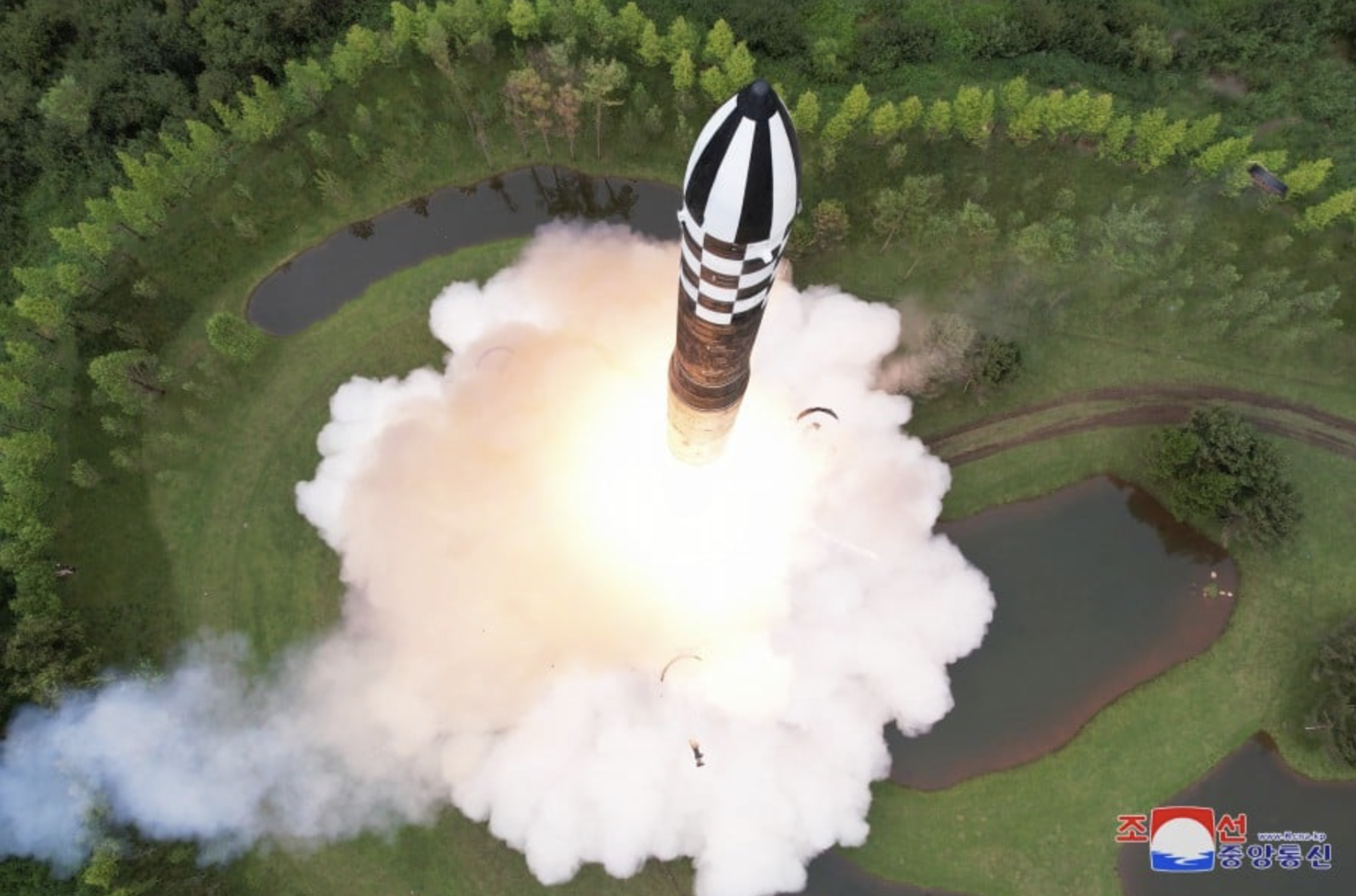
A former senior U.S. commander in Korea is raising concerns over the lack of communication between Washington and Pyongyang as North Korea aggressively advances its surveillance and missile capabilities.
Retired Army Gen. Curtis “Mike” Scaparrotti said North Korean leader Kim Jong-un’s regime is “advancing in almost every area,” including submarine-based missile technology and military satellites. He added the United States was “continuously surprised” by these advances.
Victor Cha, director of the Korea and Asia programs at the Center for Strategic and International Studies, said the satellite launch aided by Russia represents only “the tip of the iceberg” on technology transfers from the Kremlin to North Korea to modernize its conventional forces. He added that at this stage, sanctions against both would not be effective.
Scaparrotti said one avenue to begin dialogue with Kim could come through the 17 nations who are part of the U.N. Command, which was established after the North invaded the South in 1950 and started the Korean War. He noted some of those nations have stations in North Korea that could be used to reestablish talks. Direct talks between the U.S. and North Korea ended in 2018 with a failed summit meeting in Hanoi between then President Donald Trump and Kim on denuclearizing the peninsula.
Speaking Thursday during a CSIS online forum, Scaparrotti added the United States “needs to make sure we’re acting with urgency” in implementing the Washington Agreement with Seoul on its commitment to come to South Korea’s defense under the bilateral security treaty. He said that show of urgency should start with a thorough examination of command and control with an eye to speeding important data transfers.
The April declaration marking the 70th anniversary of the treaty includes this statement: “The United States commits to make every effort to consult with the ROK on any possible nuclear weapons employment on the Korean Peninsula.”
Scaparrotti’s comments come about a week after North Korea terminated the 2018 Comprehensive Military Agreement with South Korea. The agreement was designed to reduce military presence and tensions along the Demilitarized Zone by removing guard posts and heavy weapons and creating a no-fly zone over it and the peninsula’s coastal waters.
At the same time, Scaparrotti said Seoul and Washington must pay attention to strengthening air and missile defense on the peninsula. “Look at what is happening in Ukraine” and now, in the Israel-Hamas conflict in the Middle East.
Sue Mi Terry, with Macro Advisors Partners, added the wars in Europe and the Middle East give Kim more room to act aggressively by distracting Washington from events in Korea. “We don’t have any real way to stop North Korea” from pursuing its ambitious military agenda as Russia and China continue to block any more actions against Kim’s regime in the U.N. Security Council.
Scaparrotti added that the North Koreans likely are questioning the Russians on what they have learned during the months of fighting with conventional forces in Ukraine. Pyongyang maintains a standing army of more than 1.4 million soldiers that heavily relies on artillery that was manufactured in China and Russia in the 1950s and 1970s.
He saw the new U.S. air and naval trilateral exercises and deterrence patrols with Japan as “significant steps” in extending security cooperation in northeast Asia. The exchange of data among the three “needs to happen next.”
The bright spot in this picture might be China, Scaparrotti said. Beijing “wants to improve relations with the U.S.” Following the recent summit meeting between Presidents Joseph Biden and Xi Jin ping in suburban San Francisco, he added, “I know they want to improve mil-to-mil relations” because they had fallen into “a dangerous place.”
There was no direct communication between the two powers as naval and air incidents appear to be on the increase. Last month, the Pentagon released videos on unsafe Chinese air intercepts in the western Pacific.





